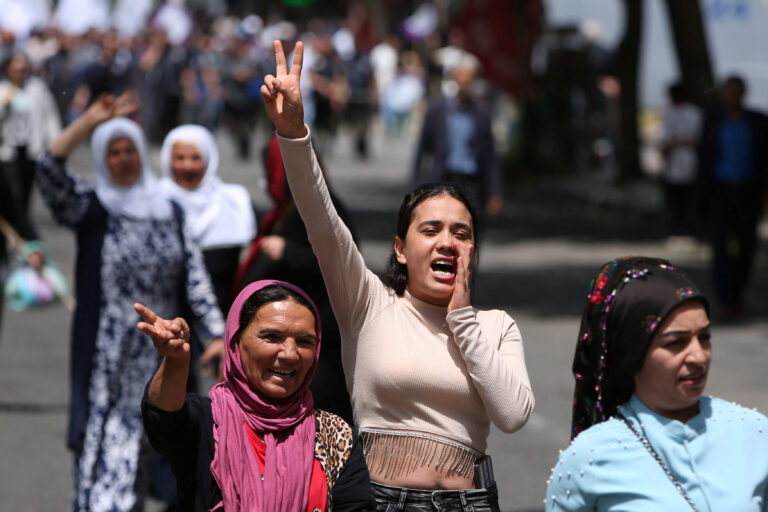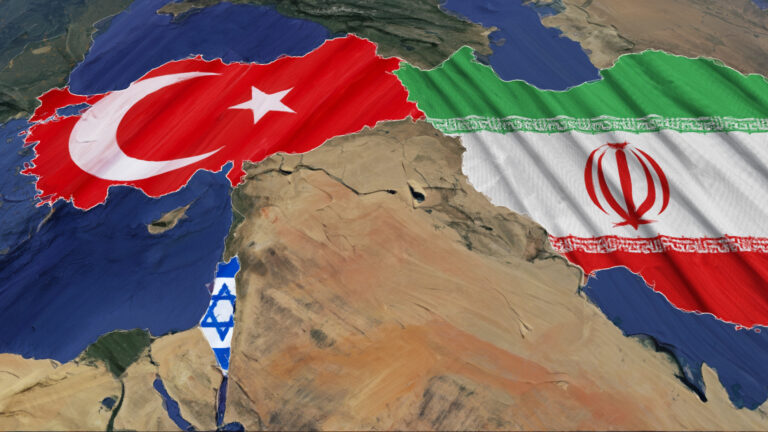Ekşi Sözlük, among Turkey’s most popular and widely-used websites, was blocked Tuesday (February 21) by the country’s central internet authority, the Information Technologies and Communications Authority (BTK). While the exact reason for the blocking remains unclear, the move follows a pattern of social media crackdown since Turkey’s February 6 earthquake that has killed over 42,000 people. On February 8, access to Twitter was temporarily blocked a day after a handful of individuals were taken into custody on charges of “provocative social media posts”.
Variously described as a hybrid between Reddit and Wikipedia, Ekşi Sözlük (Sour Dictionary) is among Turkey’s largest online platforms with over 400,000 registered users. The website has also been heavily used in the aftermath of the February 6 earthquakes as a communication tool to coordinate relief efforts, a point mentioned by many social media users on Tuesday evening who criticized the ban. Similar criticisms had been levied against the Twitter ban earlier in the month, as the website had also served an important role in search and rescue efforts. The Twitter ban, which had taken place under dubious legal basis, was lifted by authorities the following day.
Following the ban, Ekşi Sözlük released a statement on Twitter saying they were not aware of details of the ban: “We are aware of the access ban, but we do not have information about the details. We are trying to get information from authorities. We will share information as we get it.” Website founder Sedat Kapanoğlu also released a post on Twitter criticising the ban, saying “Turkish authorities have just cut-off access to @sozluk, the most popular Turkish social platform in the world. It has been used heavily for calls for help and providing relief in the regions affected by the recent earthquakes in Turkey.”
Tuesday’s ban is not the first time Ekşi Sözlük has run into issues with Turkish authorities. A popular platform for anti-government and opposition voices, the website has faced short bans in the past often related to public insults and defamation.
Even prior to this month’s earthquake, censorship of social media by Turkish authorities has seen a marked increase in recent years. A controversial bill known as the “disinformation law” (dezenformasyon yasası) was passed by the Turkish parliament in October 2022. Widely seen as an attempt to crack down on anti-government social media content, the language of the law sought to identify individuals who “spread information intended to mislead the public”. Following suspicious social media posts, social media companies are then required to give user information to Turkey’s Information Technology and Communications Authority (BTK). Failure to hand over information to the BTK results in an automatic 90% reduction in bandwidth. While the exact reasons were unclear, some attributed the Twitter ban earlier this month to this new and controversial law.
Rhetoric by President Recep Tayyip Erdoğan and allies against those who have publicly criticized the government response to the quake has also stepped up in recent weeks. In a television address just days after the initial disaster, the president warned those allegedly spreading disinformation, saying “We have been closely following those intending to set our people against each other with fake news and distortions. Today is not the day to argue with them. But when the day comes, we will open the notebook we are holding now. Our prosecutors will identify those who have attempted to cause social chaos using such inhumane methods, and then we will take the necessary actions swiftly.” Similar rhetoric has been used by Erdoğan’s primary coalition partner Devlet Bahçeli, chairman of the National Action Party (MHP), who said in a speech yesterday “Those opportunists attempting to benefit from this dark chapter…they are dishonorable and not worthy of membership in this nation. It should be known that we have taken note of them one by one.”
Following Tuesday’s move, Ekşi Sözlük’s blocking received strong criticism on Turkish websites and social media. Cyber rights expert Dr Yaman Akdeniz slammed the blocking in a Twitter post, describing the decision as “pure censorship”. While Turkish authorities have the power to restrict website access for reasons such as national security, child protection, and intelligence, Akdeniz argued that Ekşi Sözlük’s blocking was unacceptable, adding that the move took place without informing or consulting the website’s administrators.
Other websites released messages in solidarity. İnci Sözlük, another social media website, protested Ekşi’s ban in a Twitter post saying “This is absolutely unacceptable. It is not normal to restrict freedom of expression as we approach an election. The BTK has no such authority. We demand the resignation of the BTK President.” Another website Uludağ Sözlük released an ironic Twitter post saying “Just close us all.”
Ekşi Sözlük was founded in 1999 and hosts about 100,000 active contributors. Users may apply to become “authors” in which they are permitted to post entries on specific topics which are subject to quality standards and review. The website’s format and popularity have inspired other online “dictionaries” in Turkey based on a similar model.
Medyascope'un haftalık e-bülteni
Andaç'a abone olun
Editörlerimizin derlediği öngörüler, analizler, Türkiye’yi ve dünyayı şekillendiren haberler, Medyascope’un e-bülteni Andaç‘la her çarşamba mail kutunuzda.














